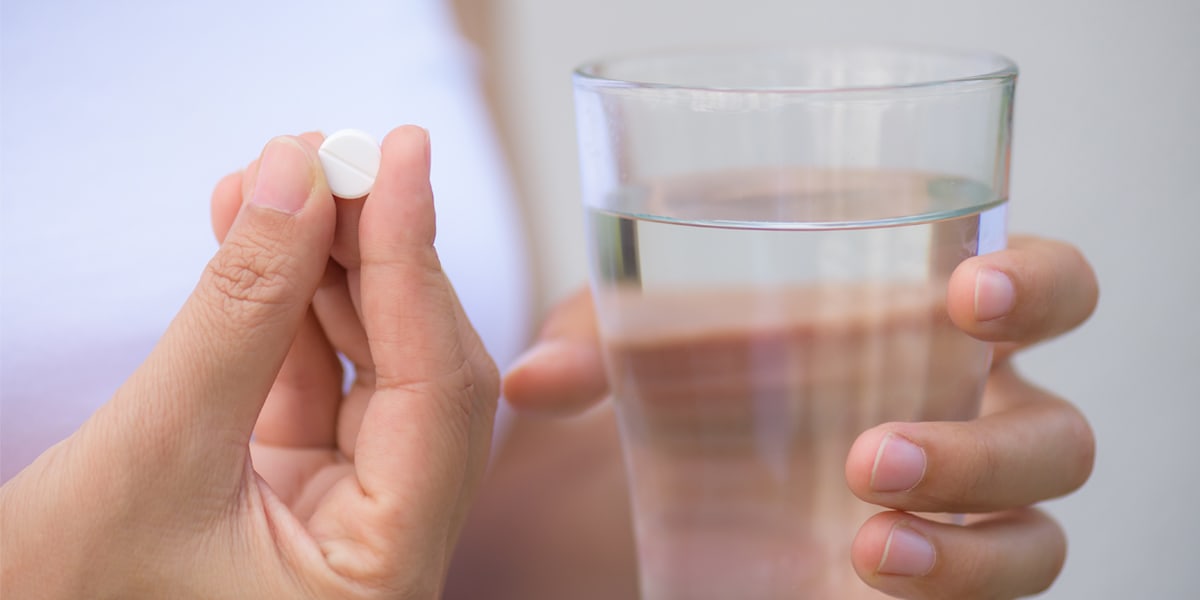The Morning After Pill: what you need to know about emergency birth control

Like many well-designed measures that come real handy in a pinch, emergency contraception is both an indispensable tool as well as something you don’t wanna resort to on the regular. Having taking the popular “morning-after pill” three times in the course of my illustrious career as a lover and a fighter, my personal experience with the med wasn’t super fun, but it was pretty good for keeping my peace of mind intact—and you know, not getting pregnant.

The morning-after pill
Most people who know about emergency contraception think first of the over-the-counter “morning-after pill,” known also by its brand names Plan B, One-Step, and its generic forms Take Action, My Way, AfterPill, and others. These pills have levonorgestrel (a synthetic progestogen) as their main ingredient and are available to people of any age. The recommendation is that you take the pill within 72 hours of unprotected sex—and the sooner the better. It’s supposed to be 89-95% effective depending how soon you take it. Research has found, however, that it may be just as effective as day 1 for up to 4 days, and possibly 5—depending where you’re at in your cycle. In other words, if you think you’re too late, you might not be.
Another morning-after-pill option, Ella, is only available with a prescription, but is said to prevent pregnancy up to 5 days post sex. There’s some evidence that Ella works closer to your ovulation time than Plan B would, so going this route might buy you extra time.

How does it work, exactly?
Noble question, I say, and one worth asking. Pregnancy doesn't happen immediately after sex, you see, which is why it can be prevented in the first place—with proper timing. Sperm can actually live inside of you for up to 6 days just waiting for a sexy egg to show up. What emergency contraception pills do is delay ovulation (that monthly party where your ovary releases an egg to maybe possibly get fertilized by a sperm) and may, depending on the case, prevent an egg that's already fertilized from implanting in your uterine lining. What it won’t do is end an existing pregnancy.
If you’ve taken the morning after pill and are wondering if it’s possible to have unprotected sex again 10 minutes later while still being protected, the answer is: maybe, possibly. But, unsurprisingly, there’s no research as of yet to back that up.
Other options
Other emergency contraception options are out there, most notably the copper IUD, which has the added benefit of offering contraception for up to a decade. Plus, it’s not hormonal, if you’re trying to get away from that. When inserted within 5 days of unprotected sex, the pregnancy rate has been shown to be just 0.1%. This handy little internal gadget prevents fertilization and prevents fertilized eggs from implanting in the uterine wall. Of course, this is only worthwhile if you want an IUD, because it’s meant as a long-term choice. Of course, you’ll want to talk to your doc and make sure you’re a good candidate too.
Another option, for those who are already on the pill but happen to have forgotten their dosage for several days prior to having unprotected sex: you may be able to simply use the pills you’ve got to make an emergency intervention— depending which pill you take. This chart offers emergency instructions for a variety of different pills. You’re more likely to experience nausea and vomiting with this method though, since birth control pills contain estrogen, unlike regular morning-after pills.

Side effects, yo
Speaking of side effects, the most common ones associated with the morning-after pill are nausea, and spotting. Less common effects include vomiting, fatigue, headache, breast soreness, dizziness, and cramps. Some people don’t feel any side effects, and most people tolerate it alright. Some people, like myself, feel nauseous and puke. As far as your period goes, it should still arrive within a week of its usual schedule. If it’s over a week late, take a pregnancy test, ‘cause nothing is 100% effective.
Thinking ahead to future emergencies
While it’s true that the morning-after pill is characteristically obtained after the down and dirty's done, thinking ahead may be smart. If you’re traveling, for instance, and wanna include it in an extra-careful just-in-case pouch, or you want to keep it in your extra-careful just-in-case nightstand, or your insurance covers it but you need to see a doc and get a prescription to get said coverage, then getting the pill in advance just to have on hand may be smart. Just be sure to pay attention to expiration dates. Not that you should rely on it as a regular contraceptive, however, because it’s not as effective, it can get expensive, and it can be tough on the body.
When it comes right down to it, if you’re having sex regularly and don’t wanna conceive, it could (maybe possibly) be better to land on a more reliable method of birth control than the emergency kind. If you’re anything like the growing body of women averse to taking oral contraceptives due to their side effects, I’m with you. Personally, I’ve always been a condom gal, since, hey, STIs are also a thing and I’m not a fan of synthetic hormones. There’s also these alternatives to the pill.
Here's to safe and sexy lovin’ for all. And the right to choose, always the right to choose.




